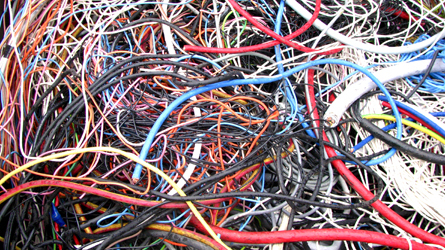Project leaders: Dr Samantha Sharpe (ISF, UTS) & A/Prof Damien Giurco (ISF, UTS)
Project team: Dr Nick Florin (Institute for Sustainable Futures); Simon Wright (ISF PhD Candidate), Prof Suzanne Benn (UTS Business), Prof Michael Ward (Monash) Dr Renu Agarwal (UTS Business), Dr Robert Perey (UTS Business)
This stream will characterize circular-economic business models for future value chains in the metals and minerals sector, including manufacturing, reuse and recycling. The aim is to characterise the emergent metals re-use/recycling industry options for Australia. This stream provides a logical complement to the work in the other two streams; determining the socio-technological options for metals recycling; and the value of such recycling across a select range of materials.
The complex interdependencies that exist in current value chains will require a systems-based industrial ecology approach in order to achieve sustainable resource management. Previous studies of emerging industries have focused analysis on two main areas of industrial emergence (i) technological solutions and (ii) successful innovators who develop successful business models of value creation and capture. This provides a one- dimensional view of industrial emergence, lacking contextual detail on the linkages between socio-political and economic context, and successful value capture. It also under-represents the role that public policy and public actors can play in the process of industrial emergence.
Whilst there is an established literature on green supply chains; to date, research has not focused on how responsible metals management (from primary or recycled sources) promotes, or constrains, innovation. We consider innovation within and between firms as open innovation becomes more established. Specifically, this project will connect conceptual and practical understandings of material and product stewardship with innovation processes. By connecting the fields of innovation and stewardship, the Cluster will use theoretical analyses and surveys for empirical data, together with interviews of exemplar firms, to build new insights at the intersection of a promising field of research.
Program outcomes
- Review and extension of business models typologies for value creation and capture in recycled materials.
- The development of future recycling and manufacturing models for Australia, including identification of market potential, early and potential adopters of closed loop recycling and services, additive manufacturing, leasing of metals; and ethical supply chain manufacturing in Australia.
- Labour market and skills analysis examining the impacts of various scenarios to enhance resource effectiveness across value chains. This includes future occupational profiles of the recycling industry and skills transferability across from the primary mining sector to the secondary (recycling) sector.
- Analysis of the public policy measures that can encourage or constrain increased metals recycling, and detail barriers and market failures in green supply chains.
A/Prof Damien Giurco: 02 9514 4978 Damien.Giurco@uts.edu.au
Dr Samantha Sharpe: 02 9514 4169 Samantha.Sharpe@uts.edu.au



